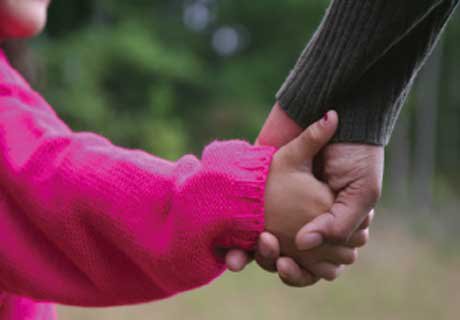
Whether your child is heading off to day care, kindergarten or college this separation marks a big milestone between you and your kids. When children struggle with separations, it’s important to offer every reassurance possible, it’s critical to make certain that they’re safe and it’s necessary to turn around and walk out the door, even when every scream pierces your heart. And certainly you know about transitional objects, those trinkets and mementos that help your kids feel like they have a piece of you, the beloved source of all their security right there in their Play-Doh® encrusted hands.
What you may not know, is that this is only half the story. Parents are prone to separation anxiety, too.
The fact that parents experience separation anxiety is one of those things that is seldom talked about so that the myth of our invulnerability can be maintained. It’s in the same category as the little known facts that women sweat, men cry and flatulence happens.
In fact, parents often get it worse than kids.
Parental Separation Anxiety
No matter who you are, separation anxiety is about letting go. It’s about testing trust and building confidence and practicing self-reliance. Kids seldom realize the risks that they face when they let go and that’s fine. Part of our job as parents is to protect them. To dole out reality in doses that we believe they are ready to digest. But this means that when your 3 year old wanders out the front door or a 6 year old watches his dad let go the first time the training wheels are off or the 16 year old gets behind the wheel of that car or your 18 year old packs up for college, their anxiety about what lays ahead may be much lower compared to yours.
As adults, we parents have seen it all. We have the cognitive capacity and the breadth of experience and a secret cache of nightmare stories collected in pediatricians’ waiting rooms and around playgrounds and pools that gives us real cause to never let go.
Your 6 year old may be worried about falling off the bike and getting a boo-boo while you’re thinking closed head injury and compound fracture. Your 16 year old’s greatest fear is his first speeding ticket while you’re thinking that perhaps you should hire an ambulance and a wrecker to follow him to school. Your 18 year old may be concerned about how her “look” will fit in on campus while you’re hyperventilating about sex, drugs, alcohol, and six-digit tuition bills.But still, you take a deep breath, smile sincerely and let them go. These are the times that our kids’ self-absorbed, space-cadet developmental state pays off. Would she even notice your knees quaking in fear as you wave goodbye?
It’s only later, in the comfort of your favorite recliner or laying in the dark unable to sleep or talking to your co-parents, your racquetball partner or your officemate that the panic sets in. Sweat beads on your forehead. Your stomach clenches and your lower extremities seek release and you can’t concentrate enough to string two words together. This is an anxiety attack, a sure sign of parental separation anxiety at its best.
Take a Deep Breath
Really. Right now. Inhale through your mouth. Hold it for a count of three ….1….2…3… and exhale through your nose. Repeat. Let your blood pressure fall and your muscles relax. Just reading about letting kids go is enough to set some of us off.
But what’s the other choice?
You can hold on to her handle bars and keep running along side while she’s 5 and 6 and … 10? 20? In fact, some parents never do let go. The result is a very immature, highly dependent and very angry adult/child. You must let go. Slowly. Carefully. You must allow your kids to fall down and skin their knees. We must allow and encourage them to gradually venture further and further from home. That means that we must face the harsh realities of even bigger dangers judiciously. Carefully. Biting our tongues and taking deep breaths and working hard to control our own separation anxieties.
But how can you know which risks are necessary and which risks are excessive? Some risks are obvious. Playing in the street. Biking without helmets. Boating without life preservers. Playing with weapons. Driving without seatbelts. These are just a few easy examples of the times that the alarm bells ringing in your head must be heeded. You don’t let your kids go when you know it’s not safe no matter how long or loud or hateful their tantrum.
(Remember: Your goal is to help your children be healthy, not happy. If they’re healthy, they can find their own happiness.)
Unfortunately, most of the time the decision to let go or not let go is far from clear cut. All you can do these times is make your best judgments knowing that you cannot keep the people you love completely safe no matter what you do. Our children’s confidence and self-esteem depends on their hard-won ability to conquer more and more challenging circumstances more and more independently.
Dr. Benjamin Garber is a freelance writer for several parenting publications and a frequent contributer to Genesee Valley Parent Magazine.
Views: 2





